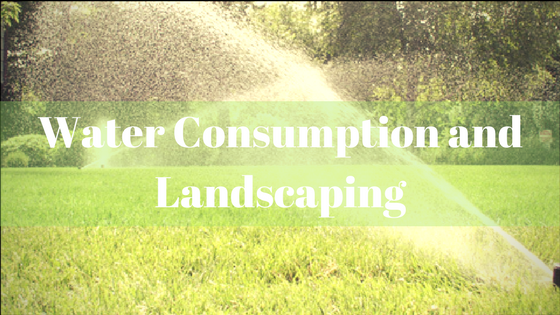Water Consumption and Landscaping
The Truth Behind Landscaping and Water consumption. Most people consider landscaping a great factor in water conservation. However, most critics contend that landscaping is the number one consumer of water. Most people believe that the more abundant the garden is, the more water it consumes.
What they do not know is that, in reality, landscaping only consumes 2.9% of the overall water consumption on a national scale. This can even be lowered if people will be sensible enough to take into consideration the limitation of the water supply.
So what accounts for the excesses in water consumption?
 According to some experts, the main cause of excessive water consumption in landscaping is actually due to improper usage. This shows that people are the ones who create the problems by themselves.
According to some experts, the main cause of excessive water consumption in landscaping is actually due to improper usage. This shows that people are the ones who create the problems by themselves.
One of the common mistakes that people do when using water for landscaping is by using the wrong irrigation procedures and noticeably poor landscaping plans.
In fact, most experts assert that the natural resource of water can supply up to 67% of the overall water use in a year. Taking this into perspective, this can become a vast opportunity for water conservation.
However, the fact remains the same: Landscapers or gardeners are humans subject to human frailties brought about by their freedom to choose and decide whatever they want. Even when some experts try to introduce the correct way to consume water in landscaping, they still have the tendency to do otherwise.
How can it be done? Take for example the water sprinkler. It would be better to use an “automatically timed water sprinkler.” This way, full control of the required water use is accomplished.
It would be better to use a water sprinkler that can be set to operate only when the temperature is very low to avoid immediate evaporation. This would mean more water for the plants and less evaporation.
A good landscaper should also keep in mind that a plant’s life is not fully dependent on water alone. It is best to maintain the landscape’s appearance by keeping it healthy and eliminate the growth of pests, through using a pesticide with fertilizer.
Landscaping and water conservation should go hand in hand. People should keep in mind that maintaining a good landscape should not be fully dependent on using a large amount of water but by using that water efficiently. The conclusion – excess use of water is bad.



Comments are closed, but trackbacks and pingbacks are open.